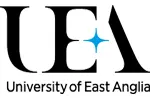We're moving! This site will be relocating to goingto.university in 2026. Please update your bookmarks to the new address.


the United Kingdom
University of East Anglia (UEA)| The award | How you will study | Study duration | Course start | Domestic course fees | International course fees |
|---|---|---|---|---|---|
| MSc | Full-time | - | - | - | - |
Study
This course is for senior clinicians and health care practitioners who want to pursue personal and professional development while contributing to their organisation's future plans, advancing their practice and leading the quality level of service delivered for their client. The course meets the NMC 'Draft Standards for Advanced Practice' and enables practitioners to develop their skills and services related to any clinical pathway.
Structure
Students study in the areas of enhanced clinical assessment, research methodologies and pathophysiology, in addition to a choice compulsory module (with opportunity to pursue work-based learning or qualitative research). You will meet regularly with peers from other schools within the School of Health Sciences: an inter-professional attitude that encourages good communication and a greater understanding of different roles within the medical profession.
Teaching
As a postgraduate student specialising in Occupational Therapy at UEA, you will benefit from research-led and problem-based teaching to ensure that, as a graduate, you're fit for practice in the modern health and social care sectors. With great pride in its inter-professional academic environment, the School not only encourages students to reach their full potential, but also inspires lifelong learning and continued professional development opportunities.
Employability
The School of Health Sciences takes a leading role in the renowned scientific research community of Norwich, a hub of exciting scientific research in the UK. As a student, you will enjoy great support for life-long learning and career development. In addition to studying this degree, a host of continual professional development (CPD) courses are available for those already qualified or working in health provision.
Open to applicants with a first degree (min 2.2 or equivalent) carrying with it a qualification in a health care profession. Special entry requirements include state registration with a recognised health profession council combined with appropriate professional experience; those already qualified as an Occupational Therapist; with support from their employing organisation.
Below are some suggested courses at other providers that you may also be interested in:
Management of Innovation and Sustainable Business Development MSc
NTNU School of International Business
Find out moreIf you do not meet the entry requirements for this course then consider one of these postgraduate preparation courses from another institution:
Graduate Diploma of Engineering (Safety, Risk and Reliability)
Engineering Institute of Technology
Find out moreThere are 413 other courses listed from University of East Anglia (UEA). A selection of these are displayed below:
Adult Literacy, Lifelong Learning and Development: International Perspectives MA
University of East Anglia (UEA)
Find out moreJoin the StudyLink email list and never miss a chance to turn your study abroad dreams into reality!

Find out more about studying in the United Kingdom